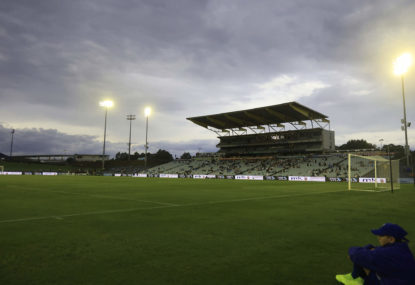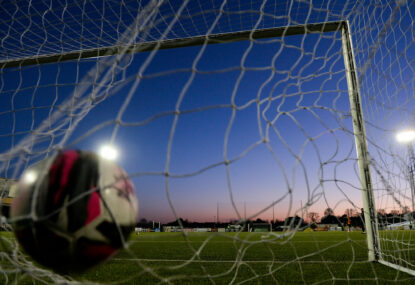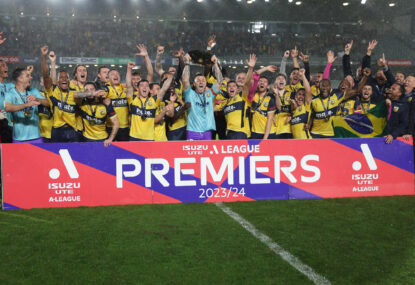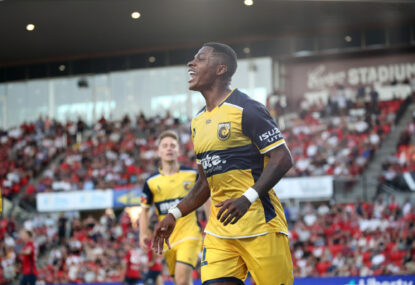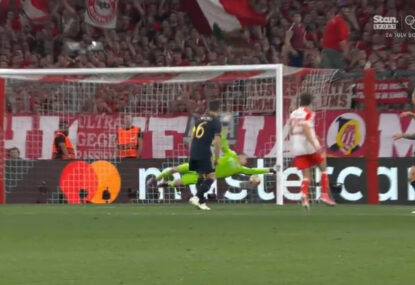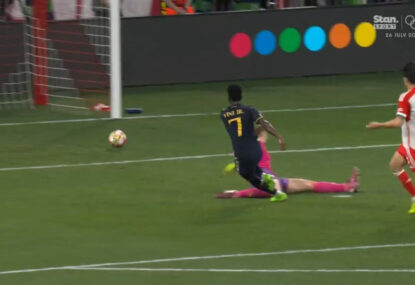While football is growing in leaps and bounds on the pitch, off-field drama has circled the A-League throughout the past fortnight. On Wednesday, the gauntlet was thrown on problem-child Gold Coast United, when Football Federation Australia revoked its A-League licence from controversial owner Clive Palmer.
The national governing body regrettably informed a packed media conference of its sudden decision, explaining how the verdict came after Gold Coast had denigrated the integrity of the competition, while also failing to comply with the completion rules, analogous to the other nine clubs.
Specifically, the FFA confirmed that the decision to terminate Palmer’s licence was ultimately due to three clear breaches of the Club Participation Agreement in recent days:
1. A conscious and deliberate contravention of FFA Policies and Procedures.
2. Deliberate defiance of a direction that was given by FFA; and
3. Repeated public statements made by or on behalf of Gold Coast United that bring the A-League, FFA and the game of football into disrepute and are prejudicial to the interests of FFA, the A-League and the game of football in Australia.
In a tumultuous period for the game, FFA CEO Ben Buckley said his team will do its utmost to make sure that Gold Coast play out their remaining four games of the season. Although, with infinite turmoil surrounding the club, he stopped short in saying that he cannot guarantee that the Surfers Paradise-outfit will complete the campaign.
“FFA will exhaust every practical option to have Gold Coast finish the season,” Buckley said.
“If we need extra time to put in place the necessary arrangements then we will consider postponing the match.”
Palmer, never one to back away from a legal stoush, confirmed via Twitter he is prepared to take the matter to the courts, before childishly condemning FFA chairman Frank Lowy.
“We intend to fight this ludicrous decision by incompetent FFA in the courts. Frank Lowy is an institution who now belongs in an institution, Palmer clarified.
Clearly incensed with the decision, Palmer who boasts a 68 to nil litigation record is adamant that his club has been treated in an unjust manner.
“We have been given no notice, we have had no hearing and we will pursue this in the high court in pursuit of natural justice,” Palmer explained to The World Game.
“We don’t know what the charge is and Frank Lowy has behaved in the manner of a dictator. He has asked for a fight and now he has one.
“Mr Lowy will have his day in court. He will be cross examined. We’ll seek to have the FFA’s records opened up over the multi-million salaries of their top executives and we will expose their poor corporate governance.”
A distressed Lowy put on a brave face when fronting the media, transparently saddened and disappointed by the whole scenario. What initially commenced as an optimistic expansion venture, ultimately emerged as a sour train-wreck.
“The material breach on Saturday night was followed by a statement from the club that it intended to continue using the slogan,” said Lowy.
“This behaviour came on top of public comments that displayed a total lack of respect for football and the millions of Australians who love the game.
“Such disrespectful behaviour, a flagrant disregard for the rules and a stated intent to continue breaking the rules made for an intolerable situation.
“As custodians of the game, we had to act to protect the integrity of the Hyundai A-League on behalf of the other nine clubs, players, coaches and most importantly, the fans.”
While Palmer illustrated utter contempt towards the game, its administrators, clubs and fans, it was always going to be a taxing assignment for both parties to work together in a collaborative and constructive manner.
Opinion has been divided on FFA’s timing of the announcement – hours before the Socceroos’ World Cup qualifier with Saudi Arabia in Melbourne – and its subsequent decision to abandon Mr. Palmer’s club, amid fierce debate in the Twittersphere, accompanied with the many forums around the football community.
If we put the recent events into perspective – the FFA made the correct decision in annulling the licence off Palmer.
No one single figure is bigger than the game at large. If Palmer couldn’t find the time of day to respect the people within football – whose passion and commitment are often the catalysts to the code’s success – then his presence inside the game was no longer welcomed.
In any walk of life, money doesn’t necessarily buy happiness. In relation to Gold Coast United, encompassing the riches of a wealthy owner isn’t the vehicle to unearthing success.
A careful and considered blueprint must be adopted to winning over the support of your local market, in tandem with a mutual respect among the code’s administration and the football community.
While Palmer may be a powerful figure in his billionaire business empire – often dictating terms with his associates – it’s manifestly clear that the mining tycoon doesn’t like to play by other peoples rules.
Although he has claimed he invested up to $18 million into Gold Coast United, it certainly hasn’t transpired to a thriving football club.
Palmer’s failure to promote football on the Gold Coast, disrespectful nature towards his fans and outlandish comments about the game – recently fuelling fire by labelling the A-League as a “joke” and rugby league as better game than football – undoubtedly were the elements which broke the camel’s back for the FFA.
The FFA welcomes investment in the A-League, however a financier has a sheer responsibility to uphold the integrity of the competition and endorse the game in a positive light. In Palmer’s case, none of these criteria were of a high priority.
With the current seven-year television deal with Fox Sports coming to a closure at the end of the 2012-13 campaign, the FFA can ill-afford to maintain a nine-team competition.
While the FFA has flirted with the idea of a Western Sydney franchise, realistically a new team won’t enter the league until the 2013-14 season at the earliest – assuming that there is adequate financial backing, a sound business model and marketable to its community.
Inverse to the doomsayers, the seventh instalment of Australia’s rejuvenated domestic competition has been a ripe success on the pitch. The game is getting better – technical standards are improving each season, coaching is becoming more sophisticated, while off the pitch, statistics indicate the competition is on the up.
Thus far this season, attendances are up 36 per cent, television viewerships are up 52 per cent and club memberships are up 20 per cent. Echoing Lowy’s sentiments, the game is in a good shape, the best it’s been since its reform. And despite the mayhem currently engulfing the game, the future is bright.
Currently, the future of Gold Coast United appears vastly bleak. While Lowy professed his desire to have a 10-team competition next season, there is still the possibility of a Gold Coast team under new management and most importantly, new ownership. Many have argued that the United brand has been tarnished under the Palmer rein, conversely it could well be the unsullied injection many fans have yearned for.
Courtesy of Goal Weekly – Follow Robbie on Twitter @RobertDiFabio





























































































